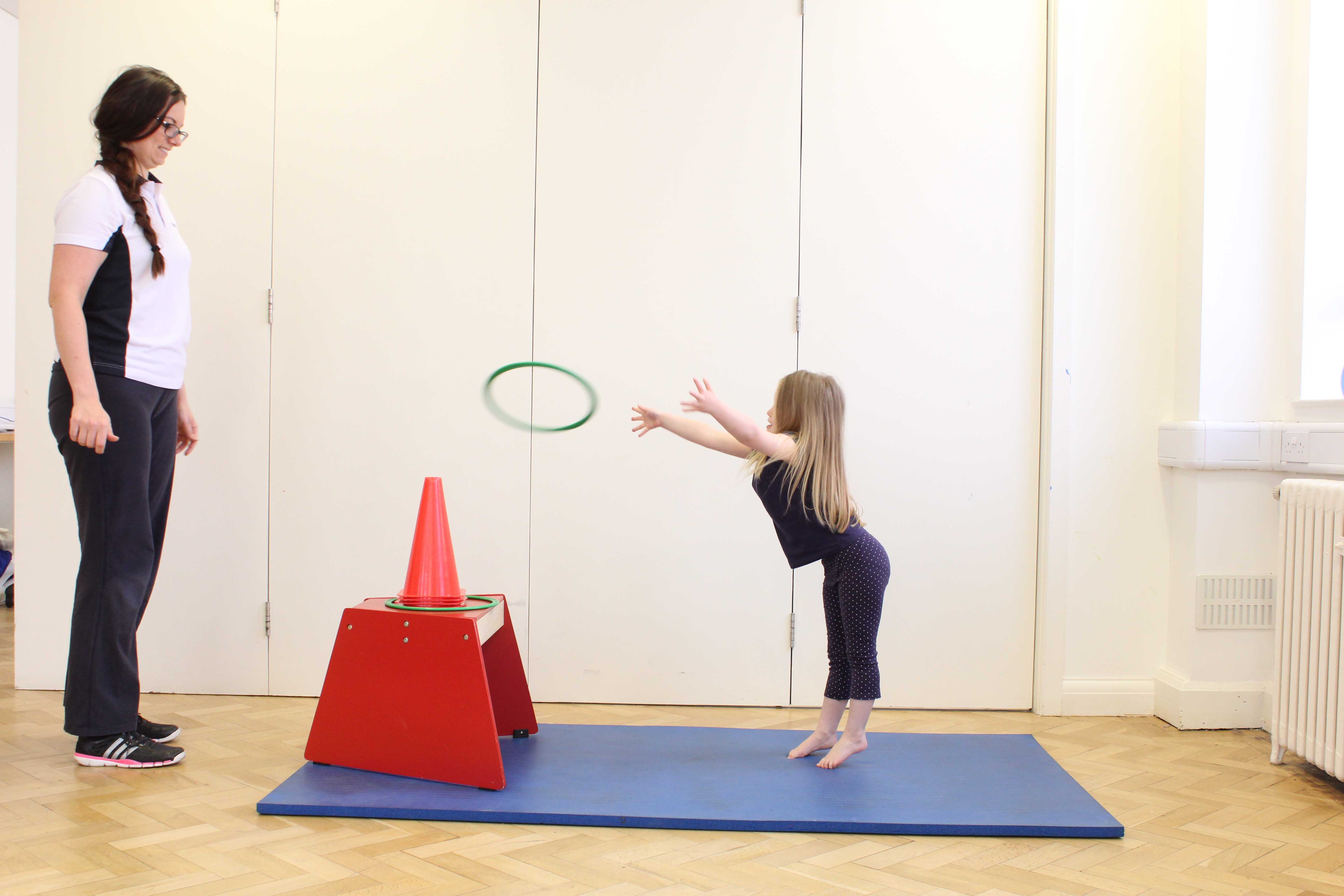What is hydrocephalus?
Hydrocephalus in children is a build-up of cerebrospinal fluid (CSF) in the cavities of the brain which increases pressure on the brain tissue. Hydrocephalus in children often causes the head to enlarge but other symptoms in babies include vomiting, sleepiness, downward deviation of the eyes (also called "sunsetting") Symptoms in older children include muscle weakness, balance problems and difficulty walking.
What are the different types of hydrocephalus?
Hydrocephalus may be congenital or acquired:
Congenital hydrocephalus means that hydrocephalus is present at birth, and may be caused by either environmental influences during development or genetic predisposition.
Acquired hydrocephalus develops at the time of birth or at some point afterward. This type of hydrocephalus can affect individuals of all ages and may be caused by injury or disease such as traumatic head injury or tumours.
 Above: Apllication of mobilisations and stretches during play activites by a paediatric physiotherapist
Above: Apllication of mobilisations and stretches during play activites by a paediatric physiotherapistWhat are the causes of hydrocephalus?
The causes of hydrocephalus are not all well known. It is thought that hydrocephalus may result from:
- Genetic inheritance
- Developmental disorders such as those associated with neural tube defects for example, spina bifida.
- Complications of a premature birth - Hydrocephalus can occur as a complication of being born too early and when there has been bleeding in the brain.
- Meningitis – this infection can affect reabsorption of CSF.
How is hydrocephalus diagnosed?
Hydrocephalus in children is usually diagnosed by measuring head circumference, an ultrasound scan, a CT (computerised tomography) scan or sometimes an MRI (magnetic resonance imaging) scan.
What are the symptoms of hydrocephalus?
Although in babies the most common symptom is an increased head circumference, symptoms in older children may include:
- Muscle spasm
- Difficulty walking
- Muscle weakness
- Problems with balance and coordination
- Fatigue
- Slowing or loss of developmental milestone (i.e. crawling, sitting, walking at the right time)
Physiotherapy following surgery is important as it will help support your child through recovery and maximise their physical potential.
Physiotherapy for hydrocephalus in children
Physio.co.uk provide specialised and individualised neurological physiotherapy treatment for babies and young children with hydrocephalus. Physiotherapy treatment at Physio.co.uk will improve your child’s physical symptoms and help them reach their developmental milestones. At Physio.co.uk our paediatric neurological physiotherapists will also focus on:
- Maximising mobility
- Improving muscle strength and flexibility
- Enhancing balance and coordination
- Promoting independence and functional ability
- Preventing soft tissue shortening
- Increasing circulation
- Maintaining weight control
- Increase confidence and sense of well being
- Improving quality of life
- Early mobility with or without the use of aids with emphasis on gait pattern
- Correcting and varying different postures to prevent soft tissue shortening
- Maximising strength and stamina of the arms and legs. A structured exercise program will be developed tailored to your child.
- Activities broken down into small achievable chunks to improve spatial awareness, fine motor control and discrimination.
- Teaching correct transfers to and from different surfaces of different heights.
- Activities to improve balance
- Advice and support to teachers, family or carers about how to continue treatment at home or at school.
For more information, or to book an appointment please call 0330 088 7800. book online today!

 0330 088 7800
0330 088 7800


































